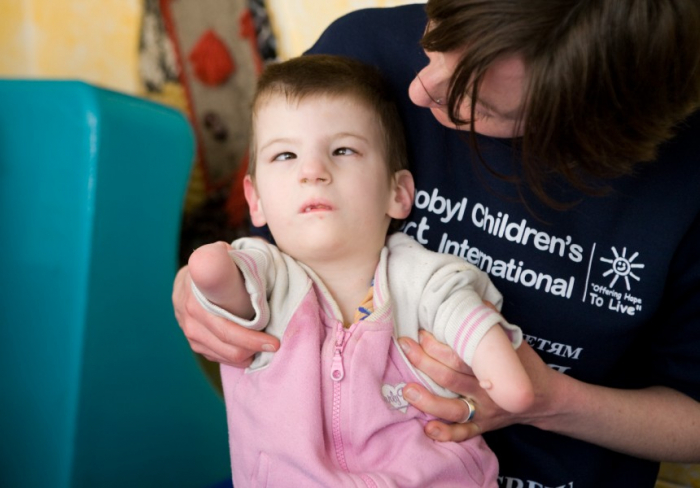There is no "additional DNA damage" in children born to parents who were exposed to radiation from the Chernobyl explosion before they were conceived.
This is according to the first study to screen the genes of children whose parents were enlisted to help in the clean-up after the nuclear accident.
Participants, all conceived after the disaster and born between 1987 and 2002, had their whole genomes screened.
The study found no mutations that were associated with a parent's exposure.
The findings are published in the journal Science.
Prof Gerry Thomas, from Imperial College London, has spent decades studying the biology of cancer, particularly tumours that are linked to damage from radiation. She explained that this new study was the first to demonstrate that "even when people were exposed to relatively high doses of radiation - when compared to background radiation - it had no effect on their future children".
The new study was led by Prof Meredith Yeager, at the US National Cancer Institute (NCI), in Maryland. It focused on the children of workers who were enlisted to help clean up the highly-contaminated zone around the nuclear power plant, and the children of evacuees from the abandoned town of Pripyat, and other settlements within the 70km zone around it.
One of the lead researchers, Dr Stephen Chanock, also from the NCI, explained that the research team recruited whole families, so the scientists could compare the DNA of a mother, a father and a child.
"Here we're not looking at what happened to those children who were [in the womb] at the time of the accident; we're looking at something called de novo mutations."
These are new mutations in DNA - they occur randomly in an egg or sperm cell. Depending on where in the genetic blueprint of a baby a mutation arises, it could have no impact at all, or could be the cause of a genetic disease.
"There are about 50-100 of these mutations every generation - and they're random," explained Dr Chanock. "In some ways, they're the building blocks of evolution. This is how new changes are introduced into a population one birth at a time.
"We looked at the mothers' and the fathers' genomes and then at the child. And we spent an extra nine months looking for any signal - in the number of these mutations - that was associated with a parents' radiation exposure. We couldn't find anything."
This means, the scientists say, that the effect of radiation on a parent's body has no impact on the children they conceive in the future.
"There are a lot of people who were scared to have children after the atomic bombs [in Nagasaki and Hiroshima]," Prof Thomas told BBC News. "And people who were scared to have children after the accident at Fukushima, because they thought their child would be affected by radiation they were exposed to.
"It's so sad. And if we can show that there's no effect, hopefully we can alleviate that fear."
Prof Thomas was not involved in the genome study. She and her colleagues have carried out another piece of research on the cancers that were linked to Chernobyl. They studied thyroid cancer, because the nuclear accident is known to have caused about 5,000 cases of that specific cancer, the vast majority of which were treated and cured.
The authorities at the time of the accident failed to prevent contaminated milk from being sold in the region; many who were children at the time drank it, receiving large doses of radioactive iodine - one of the contaminants blasted out of the damaged reactor.
"Essentially, we found that there is no difference between thyroid cancers caused by Chernobyl radiation and any other thyroid cancers," Prof Thomas explained.
"So there's no 'demon tumour' that comes out of Chernobyl that we won't be able to treat - we can just treat in exactly the same way as we treat other cases."
More about:
















































